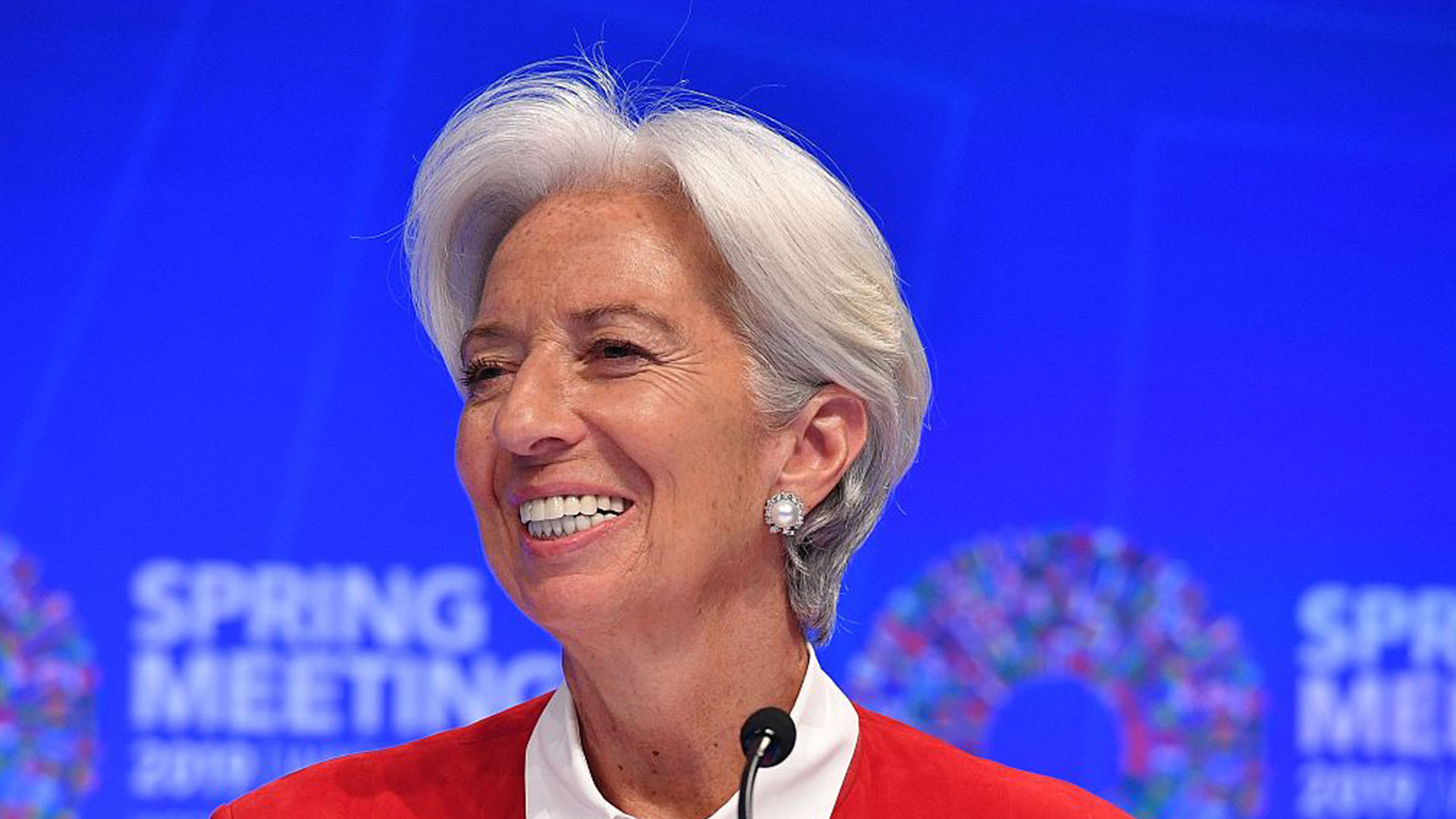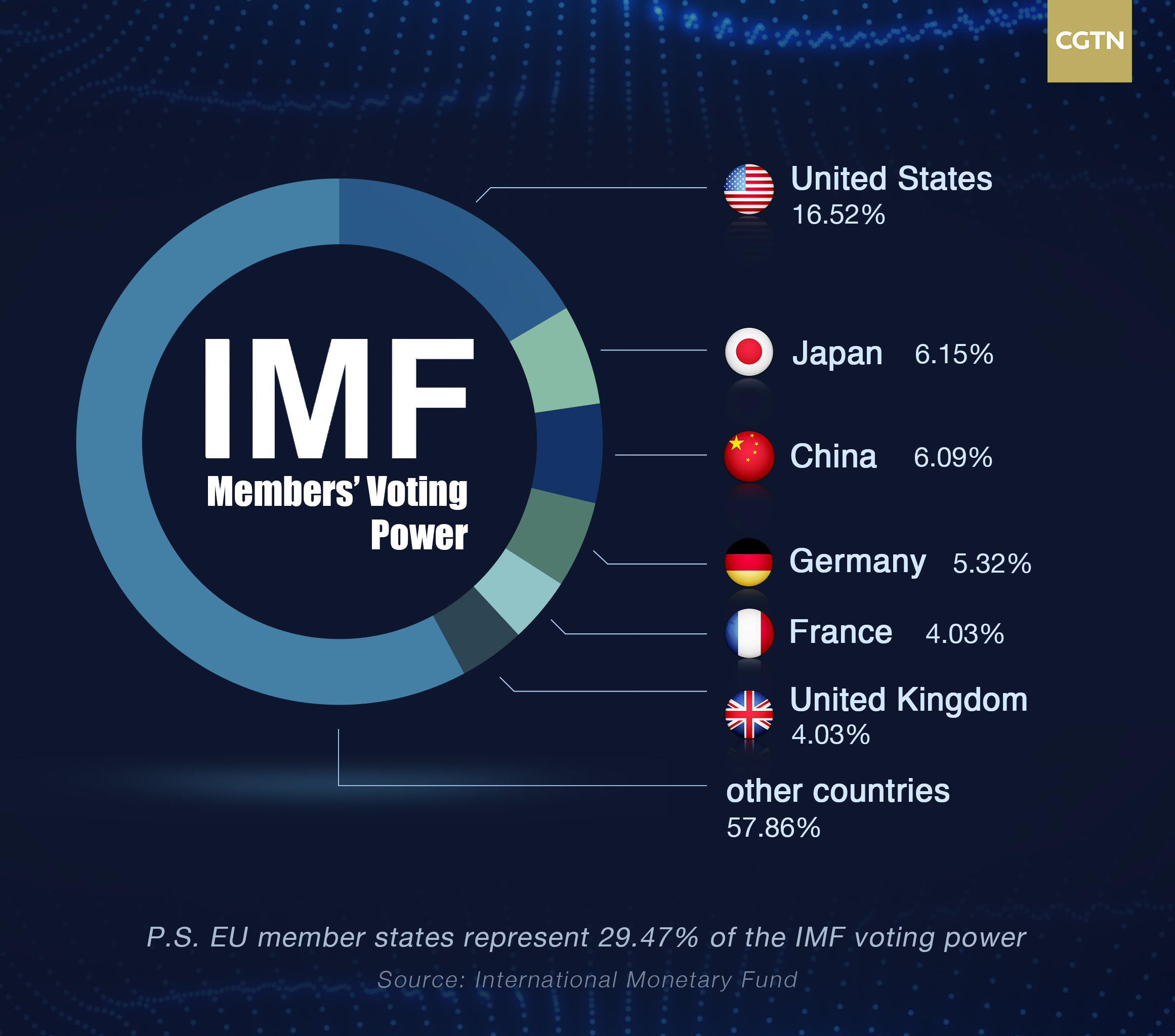

Christine Lagarde, the current managing director of the International Monetary Fund (IMF), said on Tuesday she will officially step down on Sept. 12. Two weeks earlier, the director was nominated to succeed Mario Draghi as president of the European Central Bank (ECB) when Draghi's eight-year term ends on Oct. 31.
This leaves us with a big question: Who will succeed Lagarde as the next leader of the IMF?
Before we try to figure that out, let's take a look at what the IMF is.
What is IMF?
Created in 1945, the IMF comprises 189 countries. According to its website, the fund works "to foster global monetary cooperation, secure financial stability, facilitate international trade, promote high employment and sustainable economic growth, and reduce poverty around the world." So basically, it provides loans to countries in crisis and gives practical assistance to its members.
But there is no free money. Several strings are attached, normally requiring economic reforms known as "structural adjustment," demanding the opening-up of the private sector, and the lifting of trade barriers.
The most recent "assistance" was the loan of 5.4 billion U.S. dollars to Argentina approved on July 12.
Who were the leaders?
In the IMF's 74 years of history, the fund has always been run by a European as part of a "tradition" that also sees an American always at the helm of the World Bank. About half of the IMF leaders have been French.

Lagarde has been the head of the IMF since 2011. The 63-year-old lawyer was the first woman to hold that position. If the European Council approves her ECB nomination, she will take over on Nov. 1 and become the central bank's first-ever female leader, responsible for the euro and the monetary policy of the eurozone.
How to decide who's the chief?
According to the IMF's Articles of Agreement, the "24-member Executive Board is responsible for selecting the Managing Director. Past practice has been that Executive Directors may submit a nomination for the position. Since the 2011 selection round, IMF Governors could also submit nominations."
There is no mention of the director's nationality.
At the end of the nomination period, the Executive Board would shortlist three candidates for the job and meet them in IMF's headquarters in Washington, D.C.
Countries with higher "quotas" – a measure that reflects its relative position in the world economy – are given higher voting powers in IMF's voting rules. Both quota and voting shares will change as members pay their quota increases.
The United States takes the first spot in the voting shares, which represents 16.52 percent of the total. Since all of the IMF's substantial decisions need to be approved by 85 percent of the total membership, the U.S. has the absolute advantage.
With the EU member states taking up almost one third of the pool, the combination of EU and U.S.' voting shares reaches nearly 50 percent of the total, which make them very "comfortable" in the IMF.

Grahpic Design: Gao Hongmei
So who will be the next chief?
"What we want in France is first to have a European Union candidate that can succeed Lagarde as the head of the IMF; secondly, we want to be able to take a decision quickly; thirdly, I want it to be a unique candidate, presented by the EU, without useless rivalries," Bruno Le Maire, the French finance minister, said earlier this month.
His Spanish counterpart, Nadia Calvino, also said choosing a European for it was a "priority."
So far, it might be premature to talk about who will lead the fund next, but some names are already floating around.
Mark Carney, the current governor of the Bank of England, who also has an Irish passport, is under the spotlight for this role.
Meanwhile, the Dutch government is campaigning for former finance minister Jeroen Dijsselbloem, according to Bloomberg.
Bank of Finland governor Olli Rehn, Portuguese finance minister Mario Centeno and current chief executive of the World Bank Kristalina Georgieva are also on the potential list.
The Group of Seven meeting will be held in Chantilly, France, next month. It is considered a "discussion table" for the next IMF chief and may give us more clues when it takes place.

Copyright © 2018 CGTN. Beijing ICP prepared NO.16065310-3
Copyright © 2018 CGTN. Beijing ICP prepared NO.16065310-3